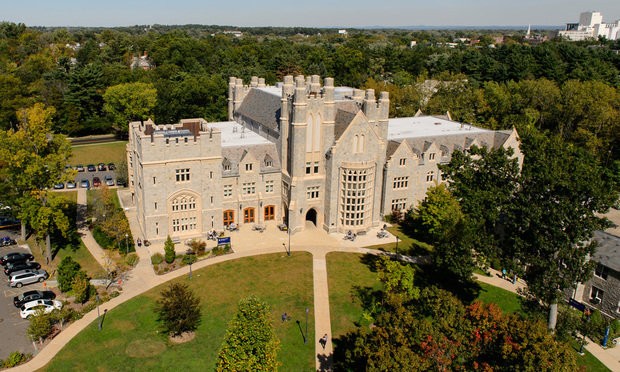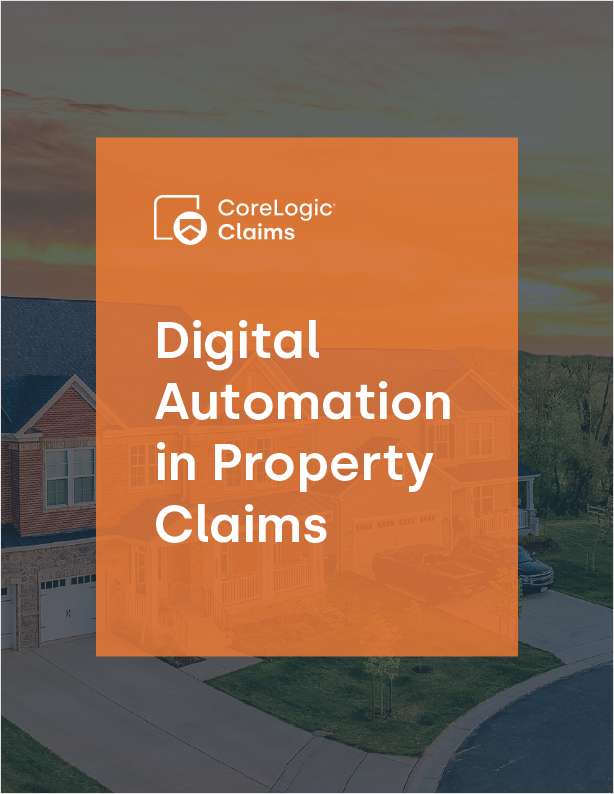Connecticut's Bar Exam Pass Rate Jumps 5 Percentage Points
The July 2019 pass rate for the bar exam hit 60%, or about 5 percentage points higher than the year before, still considerably lower than the traditional July pass rate of about 70%.
September 27, 2019 at 06:21 PM
4 minute read
 A view of the Thomas J. Meskill Law Library at the University of Connecticut School of Law in Hartford. Photo: Peter Morenus/UConn
A view of the Thomas J. Meskill Law Library at the University of Connecticut School of Law in Hartford. Photo: Peter Morenus/UConn
The percentage of test takers passing Connecticut's July bar exam increased slightly to 60% this year, up from 55% a year ago.
The number, though, is still lower than the pass rate in most years over the past decade, which typically hovered around 70%.
The statistics for July 2019 were released Friday afternoon. They shows 182 out of 303 candidates passed.
The pass rate for first-time test takers also increased from the previous year, inching to 73%, up from 70%.
Among the two colleges with the highest numbers of test takers, one saw a dramatic improvement from the previous year, while the other dipped.
At the University of Connecticut School of Law, which had the most candidates, the overall pass rate zoomed to 76% in July, up from 59% one year earlier. Sixty-five of its 86 candidates passed the bar exam. Meanwhile, 82% of the university's first-time test takers succeeded, compared with 68% in July 2018.
But for Quinnipiac University School of Law, which had the second-largest group of test takers, the results were worse than last year's. The university fell to an overall pass rate of 62%, down from 76% in 2018, as 41 of its 66 candidates passed. Among its first-time test takers, 73% succeeded, compared with 82% one year earlier.
Western New England University in Springfield, Massachusetts, went from a pass rate of 28% in July 2018 to 20%, with six of 39 people passing in 2019.
Yale University Law School students continued their perfect streak for the second year in a row. All of its eight candidates succeeded, just as the five who sat had done in July 2018.
UConn's winning formula
University of Connecticut School of Law dean Timothy Fisher told the Connecticut Law Tribune Friday that "the meaningful numbers for me are the first-time test takers, because those are the people we had access to and that we were working with this year."
Fisher attributes the improved performance to several factors.
"We did a lot in terms of curriculum here. We have a full-time academic support faculty member who started in that role in 2018," he said.
That faculty member, Mary Beattie, "works with every student who wants extra help on the bar exam," Fisher said. "She also teaches a course on specifically taking the bar exam, and teaches how to understand the writing on the bar exam and the methodology of it."
A recent hire, adjunct professor Samuel Farkas, teaches a new online bar-preparation course for credit, and the university covers the costs. The course, Fisher said, focuses on the bar exam's subject matter and multiple choice section.
John Morgan, a spokesman for Quinnipiac, referred inquiries to interim dean Brad Saxton, who could not be reached by press time.
Connecticut Bar Examining Committee administrative director Jessica Kallipolites told the Connecticut Law Tribune, "We were all hopeful the numbers would go up. If it had gone below 55%, we would have been surprised. I do hope that last year was an aberration."
With the exception of a policy implemented two years ago to allow test takers with law degrees outside the country to take the bar exam here, Kallipolites said "there is nothing to pinpoint to say why the numbers" have gone below 70% for July's exam in the last two years.
Three of nine, or 33%, of the foreign students who took the test this July passed.
See the full results here:
Read more:
Only 40% of Candidates Passed the Connecticut Bar Exam in February
This content has been archived. It is available through our partners, LexisNexis® and Bloomberg Law.
To view this content, please continue to their sites.
Not a Lexis Subscriber?
Subscribe Now
Not a Bloomberg Law Subscriber?
Subscribe Now
NOT FOR REPRINT
© 2025 ALM Global, LLC, All Rights Reserved. Request academic re-use from www.copyright.com. All other uses, submit a request to [email protected]. For more information visit Asset & Logo Licensing.
You Might Like
View All
After Shutting USAID, Trump Eyes Department of Education, CFPB

University of New Hampshire Law School Launches Specialized Health, Life Sciences Program

From 'Confusing Labyrinth' to Speeding 'Roller Coaster': Uncertainty Reigns in Title IX as Litigators Await Second Trump Admin
6 minute read
Federal Judge Weighs In on School's Discipline for 'Explicitly Copying AI-Generated Text' on Project
Trending Stories
- 1CFPB Labor Union Files Twin Lawsuits Seeking to Prevent Agency's Closure
- 2Crypto Crime Down, Hacks Up: Lawyers Warned of 2025 Security Shake-Up
- 3Atlanta Calling: National Law Firms Flock to a ‘Hotbed for Talented Lawyers’
- 4Privacy Suit Targets Education Department Over Disclosure of Student Financial Data to DOGE
- 5Colwell Law Group Founder Has Died in Skiing Accident
Who Got The Work
J. Brugh Lower of Gibbons has entered an appearance for industrial equipment supplier Devco Corporation in a pending trademark infringement lawsuit. The suit, accusing the defendant of selling knock-off Graco products, was filed Dec. 18 in New Jersey District Court by Rivkin Radler on behalf of Graco Inc. and Graco Minnesota. The case, assigned to U.S. District Judge Zahid N. Quraishi, is 3:24-cv-11294, Graco Inc. et al v. Devco Corporation.
Who Got The Work
Rebecca Maller-Stein and Kent A. Yalowitz of Arnold & Porter Kaye Scholer have entered their appearances for Hanaco Venture Capital and its executives, Lior Prosor and David Frankel, in a pending securities lawsuit. The action, filed on Dec. 24 in New York Southern District Court by Zell, Aron & Co. on behalf of Goldeneye Advisors, accuses the defendants of negligently and fraudulently managing the plaintiff's $1 million investment. The case, assigned to U.S. District Judge Vernon S. Broderick, is 1:24-cv-09918, Goldeneye Advisors, LLC v. Hanaco Venture Capital, Ltd. et al.
Who Got The Work
Attorneys from A&O Shearman has stepped in as defense counsel for Toronto-Dominion Bank and other defendants in a pending securities class action. The suit, filed Dec. 11 in New York Southern District Court by Bleichmar Fonti & Auld, accuses the defendants of concealing the bank's 'pervasive' deficiencies in regards to its compliance with the Bank Secrecy Act and the quality of its anti-money laundering controls. The case, assigned to U.S. District Judge Arun Subramanian, is 1:24-cv-09445, Gonzalez v. The Toronto-Dominion Bank et al.
Who Got The Work
Crown Castle International, a Pennsylvania company providing shared communications infrastructure, has turned to Luke D. Wolf of Gordon Rees Scully Mansukhani to fend off a pending breach-of-contract lawsuit. The court action, filed Nov. 25 in Michigan Eastern District Court by Hooper Hathaway PC on behalf of The Town Residences LLC, accuses Crown Castle of failing to transfer approximately $30,000 in utility payments from T-Mobile in breach of a roof-top lease and assignment agreement. The case, assigned to U.S. District Judge Susan K. Declercq, is 2:24-cv-13131, The Town Residences LLC v. T-Mobile US, Inc. et al.
Who Got The Work
Wilfred P. Coronato and Daniel M. Schwartz of McCarter & English have stepped in as defense counsel to Electrolux Home Products Inc. in a pending product liability lawsuit. The court action, filed Nov. 26 in New York Eastern District Court by Poulos Lopiccolo PC and Nagel Rice LLP on behalf of David Stern, alleges that the defendant's refrigerators’ drawers and shelving repeatedly break and fall apart within months after purchase. The case, assigned to U.S. District Judge Joan M. Azrack, is 2:24-cv-08204, Stern v. Electrolux Home Products, Inc.
Featured Firms
Law Offices of Gary Martin Hays & Associates, P.C.
(470) 294-1674
Law Offices of Mark E. Salomone
(857) 444-6468
Smith & Hassler
(713) 739-1250










